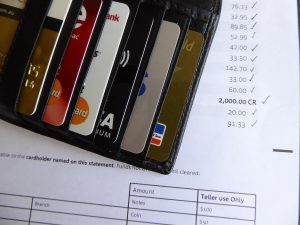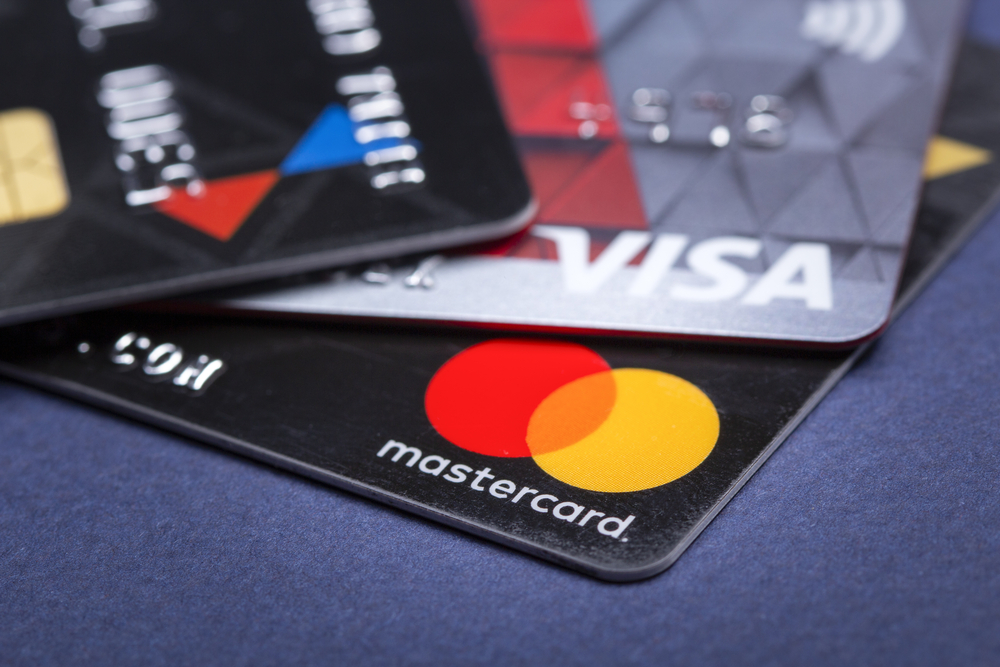
5 Reasons Why You’re Considered A High-Risk Merchant
Oct 17, 2017 4-MINUTE READ
You might be considered a high-risk merchant. Reasons can include your business’ industry reputation, poor processing history, and having high-ticket items.
Thankfully, there’s good news! Service providers (like DirectPayNet) specialize in helping business owners like you win. Here are five reasons your business is in this category and how it affects your online payments.

1. You’re in an industry with a “bad reputation”
When people hear the term “high-risk merchant,” they think of online porn and free-trial diet or supplement vendors. Well, business courses and coaching, education, online fitness, info products, guns and other firearms, travel and monthly subscriptions are plagued with having a “bad reputation” too. This also applies to marijuana businesses (MRBs according to the banking industry).
Banks monitor federal and state-level government policies, and industry regulations. The more government agencies (e.g. the FDA) discuss and focus on an industry, the more scrutiny increases. There are a few things you can do to overcome this.
Firstly, make sure your financial statements are in great shape. This is especially important if you are applying for a merchant account. Chargeback and refund levels should be low monthly. Reduce the number of chargebacks by making sure your customer’s recognize the charge on their credit card bill. Your billing descriptor should be easily identifiable on your order page.
For more advice on high-converting checkout pages, click here.
Additionally, minimize fraud. Making CVV/CV2 and AVS mandatory are simple, affordable forms of fraud prevention, especially if you benefit from affiliate marketing traffic. Use fraud mitigation tools like transaction limits per credit card number or email address. Use a double opt-in process and if the email bounces, void the transaction of that customer. Moreover, block orders from countries where you do not ship or your product should not be made available.
2. You have little to no processing history
Are you a startup online business? Do you have little to no processing history? You could be considered a high-risk merchant.
Some merchants face a lot of scrutiny from payment providers, which can delay your business’ ability to start processing. Rather than panic, develop a good relationship with a merchant service provider. DirectPayNet has over a decade of experience in the high-risk merchant account market. Partner with experts like us that already have good banking relationships.
We’ve seen and heard our fair share of horror stories. We’ve met merchants who were given false promises. Merchants hit with excessively high transaction processing rates. And merchants robbed by so-called reliable payment service providers. Do your research!
Additionally, some banks will ask for more details about your business. Have a brief, but solid, business plan summarizing your model, how you intend to market your products, plus realistic projections. Given you have a limited business history, your personal credit and banking information can be a source for starting a positive banking relationship. Also, having a clear corporate structure for your business is helpful.

3. You have high-ticket items and monthly volume
Banks are concerned about high-ticket items and monthly volume projections (e.g. over $50,000 per month for a new business). For example, if you sell an online business coaching package for $8000, you’re considered high risk.
Banks are afraid of excessive refunds and chargebacks, because the liability for repayment lies on the bank should you default or go out of business. There are very successful high-risk merchants succeeding with high numbers. But they have experience under their belt.
Be strategic if you have a successful high-volume business. Start with small ticket items or limit your monthly volume request, if possible. Build your audience (and traffic). Then grow your volume gradually over several months. Order fulfillment should be fast and clearly mention delays to your customers! The last thing you want is a flood of sales overnight, but delayed delivery. High volume of orders can result in high volume of chargebacks. Lower the cost of your product or have a range of low to high-priced products.
Especially relevant is having a compliant website. Your website footer should display your company’s legal name, address and customer support phone number. Have a page with clear product descriptions. Update your terms and conditions and privacy policy pages. These should be thorough, including details about how and where your products are delivered. Customers should easily locate these pages through links in your footer.
Finally, little tweaks go a long way. Ensure your customer service is responding quickly and is available for a reasonable amount of time daily. These small steps can make the difference in reducing fraud and eventual refunds on orders for your high-ticket products.
4. You’re considered a high-risk merchant if you have high rates and reserves
High reserve and discount rates are common issues for high-risk merchants. If you prove that you’re a trustworthy business, the banks will take it easy on you. How do you do this exactly?
Most banks that work with high-risk merchants keep a 5-10% reserve of monthly sales for several months. They typically start refunding after six months of successful processing. Your account comes with banking and gateway fees. If your chargeback and refund rates stay low, your reserve percentage might decrease too. Processing statements with no higher than a 1% chargeback rate or refund-to-sale ratio are great to have.
Banks have risk, fraud and chargeback forecasts on merchants in your industry. Therefore, you need good profit so boarding your account is advantageous to the bank. If pricing is too low and you have issues with fraud or higher than normal chargebacks, your bank may not be be forgiving. This is because they are not making enough money to cover any potential liability on your account. Negotiate intelligently; the lowest transaction pricing may always be the most beneficial. Banks are businesses; your healthy profit may make the bank want to keep you around longer. Also, leverage your merchant account service provider’s relationship with the bank. A partner like DirectPayNet can help you manage your banking relationship to ensure your interests and merchant account are protected.

5. You’re threatened with account termination
Being a high-risk merchant seems like no big deal until your account is terminated! Multiple reasons for account termination range from consistent incidents of chargebacks to excessive fraudulent transactions to a change in the bank’s policy regarding your industry. If this happens to you, contact your service provider. They have experience navigating a proper response to the bank that will increase your chances of keeping your account.
Learn why you’re being terminated. There could be a slim chance of saving your account with some strategic steps. Some banks might allow a 30-day grace period. If termination is not negotiable, grab at least six months of processing statements by calendar month. You’ll need it to apply for another merchant account. High-risk merchant accounts take longer to obtain so start looking right away. If you’re terminated or technical issues prevent you from collecting payment, it’s a good idea to have a back-up merchant account so you’re not scrambling to find a payment solution.
Being a high-risk merchant has its challenges! However, you can still operate and make a lot of money with the right service provider and plans to minimize risk in your merchant account.




